Filter by
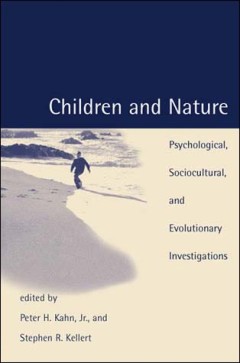
Children and Nature: Psychological, Sociocultural, and Evolutionary Investiga…
For much of human evolution, the natural world was one of the most important contexts of children's maturation. Indeed, the experience of nature was, and still may be, a critical component of human physical, emotional, intellectual, and even moral development. Yet scientific knowledge of the significance of nature during the different stages of childhood is sparse. This book provides scientific…
- Edition
- -
- ISBN/ISSN
- 9780262276641
- Collation
- 1 online resource (xix, 348 pages) :illustrations
- Series Title
- -
- Call Number
- -
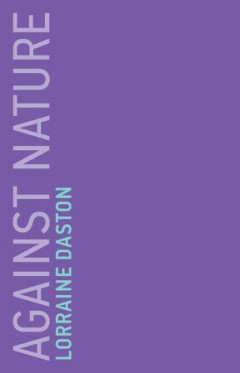
Against nature
A pithy work of philosophical anthropology that explores why humans find moral orders in natural orders. Why have human beings, in many different cultures and epochs, looked to nature as a source of norms for human behavior From ancient India and ancient Greece, medieval France and Enlightenment America, up to the latest controversies over gay marriage and cloning, natural orders have been enli…
- Edition
- -
- ISBN/ISSN
- 9780262353809
- Collation
- 1 online resource (96 pages) :illustrations.
- Series Title
- -
- Call Number
- -
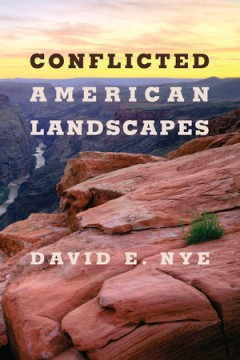
Conflicted American landscapes
"Traces six contradictory American ideologies of nature from their emergence in the late eighteenth century to the present to explore how inconsistent conceptions of nature lead to conflict"--OCLC-licensed vendor bibliographic record.
- Edition
- -
- ISBN/ISSN
- 0262363097
- Collation
- 1 online resource.
- Series Title
- -
- Call Number
- -
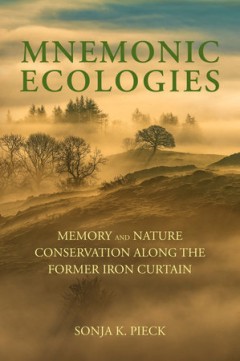
Mnemonic ecologies :memory and nature conservation along the former iron curtain
"Examination of the relationships among conservation, restoration, novel ecosystems, collective trauma, and memorialization as illustrated by the Green Belt between the former East and West Germanies"--OCLC-licensed vendor bibliographic record.
- Edition
- -
- ISBN/ISSN
- 9780262375245
- Collation
- 1 online resource.
- Series Title
- -
- Call Number
- -
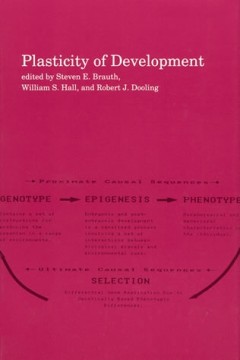
Plasticity of development
Revised papers presented at a series of lectures, during the 1986-87 academic year. Organized by the Program for Developmental Research, University of Maryland, College Park."A Bradford book."Errata slip inserted.OCLC-licensed vendor bibliographic record.
- Edition
- -
- ISBN/ISSN
- 9780262269193
- Collation
- 1 online resource (viii, 182 pages) :illustrations
- Series Title
- -
- Call Number
- -
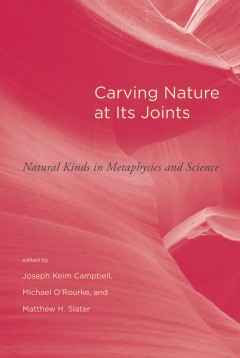
Carving Nature at Its Joints: Natural Kinds in Metaphysics and Science
"A Bradford book.""Contemporary discussions of the success of science often invoke an ancient metaphor from Plato's Phaedrus: successful theories should 'carve nature at its joints.' But is nature really 'jointed'? Are there natural kinds of things around which our theories cut? The essays in this volume offer reflections by a distinguished group of philosophers on a series of intertwined issue…
- Edition
- -
- ISBN/ISSN
- 9780262298780
- Collation
- 1 online resource (viii, 355 pages).
- Series Title
- -
- Call Number
- -
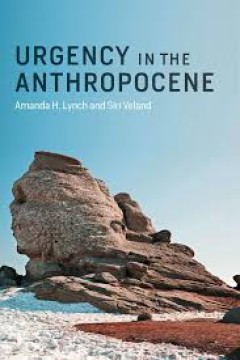
Urgency in the Anthropocene
Is this the Anthropocene? The age in which humans have become a geological force, leaving indelible signs of their activities on the earth. The narrative of the Anthropocene so far is characterized by extremes, emergencies, and exceptions-a tale of apocalypse by our own hands. The sense of ongoing crisis emboldens policy and governance responses that challenge established systems of sovereignty…
- Edition
- -
- ISBN/ISSN
- 9780262348898
- Collation
- 1 online resource (xii, 238 pages)
- Series Title
- -
- Call Number
- -

Heredity, Family, and Inequality: A Critique of Social Sciences
Empirical literature in disciplines ranging from behavioural genetics to economics shows that in virtually every aspect of life the outcomes of children are correlated to a greater or lesser extent with the outcomes of their parents. Beenstock offers theoretical and methodological tools for understanding these correlations.OCLC-licensed vendor bibliographic record.
- Edition
- -
- ISBN/ISSN
- 0262301385
- Collation
- 1 online resource (viii, 474 pages) :illustrations
- Series Title
- -
- Call Number
- -

The anthropocene cookbook :recipes and opportunities for future catastrophes
"The Anthropocene Cookbook is by far the most comprehensive collection of ideas about future food from the perspective of art, design, and science. The book is unique in the way it connects food, art, thinking, and science. It talks to the new generation of aesthetically aware environmentalists. It promotes ecological thinking from a radically different perspective: what happens if we embrace t…
- Edition
- -
- ISBN/ISSN
- 9780262371643
- Collation
- 1 online resource
- Series Title
- -
- Call Number
- -

The politics of rights of nature :strategies for building a more sustainable …
"On the global development of legislation, treaty negotiations, constitutional measures, and litigation resulting in legal recognition of Rights of Nature (RoN), including the cultural and political influences that determined how these legal rights were framed, the method of adoption and, importantly, the evolution of RoN enforcement through judicial decisions and growing cultural familiarity w…
- Edition
- -
- ISBN/ISSN
- 0262366606
- Collation
- 1 online resource.
- Series Title
- -
- Call Number
- -
 Computer Science, Information & General Works
Computer Science, Information & General Works  Philosophy & Psychology
Philosophy & Psychology  Religion
Religion  Social Sciences
Social Sciences  Language
Language  Pure Science
Pure Science  Applied Sciences
Applied Sciences  Art & Recreation
Art & Recreation  Literature
Literature  History & Geography
History & Geography